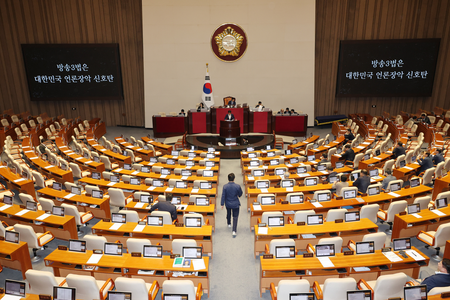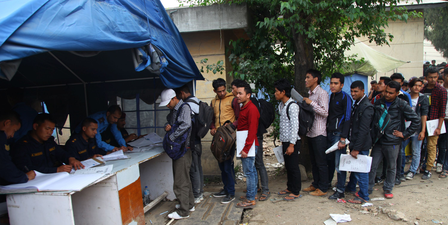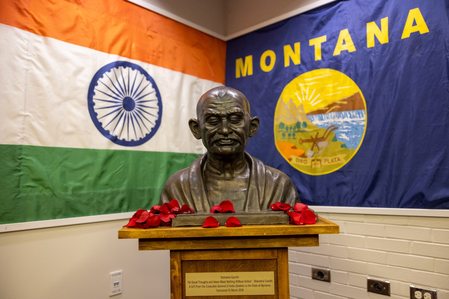
Seoul, Aug 21 (IANS) The South Korean National Assembly on Thursday passed one of three controversial broadcasting bills aimed at reducing the government’s influence over public broadcasters, with the ruling Democratic Party (DP) railroading the bill despite objection from the main opposition People Power Party (PPP).
During a parliamentary plenary session, the amendment to the Foundation for Broadcast Culture Act passed with 169 lawmakers in favour and one against, out of 171 lawmakers.
PPP lawmakers boycotted the vote in protest of the bill.
The legislation is one of three contentious broadcasting bills pushed by the DP that would eventually alter the governance structure of the three public broadcasters — KBS, MBC, and EBS — by significantly increasing the number of their board directors and granting media and broadcasting associations.
Under the bill, the number of board members of the Foundation for Broadcast Culture, a major shareholder of public broadcaster MBC, will be expanded from nine to 13.
The DP and the conservative PPP have clashed over the legislation, with the PPP arguing that the bills will only increase the presence of progressive figures on the boards of public broadcasters.
The bill was automatically shelved when the July extraordinary session ended at midnight on August 5 after the PPP launched a filibuster to block its passage.
At Thursday’s session, the DP, which currently holds a parliamentary majority with 167 out of 298 seats, presented the remaining broadcasting bill — the Korea Educational Broadcasting System Act. The PPP immediately launched another filibuster to prevent the vote, Yonhap news agency reported.
The DP-controlled National Assembly has already passed an amendment to the Broadcasting Act, the first of the three broadcasting bills, earlier this month.
The ruling party plans to propose the so-called yellow envelope bill, which seeks to broaden labor protections, and a revision to the Commercial Act.
A filibuster involves lawmakers holding the floor for extended periods as a way to prevent a parliamentary vote or delay the passage of a bill. Under the National Assembly Act, a filibuster can be stopped after 24 hours if at least three-fifths of all parliament members, or 180 lawmakers, consent to it.
Meanwhile, Choo Mi-ae, a six-term DP lawmaker, was elected to lead the parliamentary legislation and judiciary committee, after her predecessor, Lee Choon-suak, was expelled from the party for triggering public outrage over allegations of stock trading under a borrowed name.
–IANS
int/jk/sd




